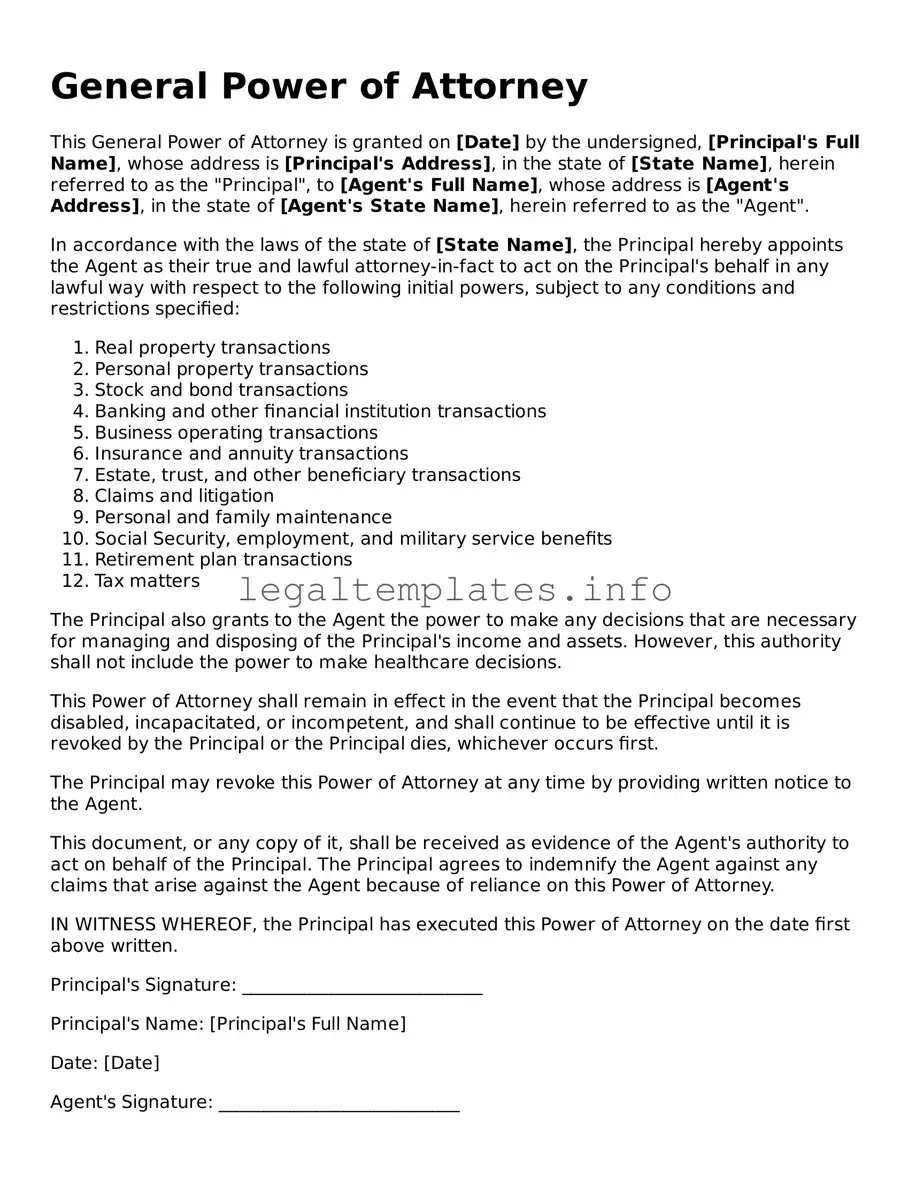General Power of Attorney
This General Power of Attorney is granted on [Date] by the undersigned, [Principal's Full Name], whose address is [Principal's Address], in the state of [State Name], herein referred to as the "Principal", to [Agent's Full Name], whose address is [Agent's Address], in the state of [Agent's State Name], herein referred to as the "Agent".
In accordance with the laws of the state of [State Name], the Principal hereby appoints the Agent as their true and lawful attorney-in-fact to act on the Principal's behalf in any lawful way with respect to the following initial powers, subject to any conditions and restrictions specified:
- Real property transactions
- Personal property transactions
- Stock and bond transactions
- Banking and other financial institution transactions
- Business operating transactions
- Insurance and annuity transactions
- Estate, trust, and other beneficiary transactions
- Claims and litigation
- Personal and family maintenance
- Social Security, employment, and military service benefits
- Retirement plan transactions
- Tax matters
The Principal also grants to the Agent the power to make any decisions that are necessary for managing and disposing of the Principal's income and assets. However, this authority shall not include the power to make healthcare decisions.
This Power of Attorney shall remain in effect in the event that the Principal becomes disabled, incapacitated, or incompetent, and shall continue to be effective until it is revoked by the Principal or the Principal dies, whichever occurs first.
The Principal may revoke this Power of Attorney at any time by providing written notice to the Agent.
This document, or any copy of it, shall be received as evidence of the Agent's authority to act on behalf of the Principal. The Principal agrees to indemnify the Agent against any claims that arise against the Agent because of reliance on this Power of Attorney.
IN WITNESS WHEREOF, the Principal has executed this Power of Attorney on the date first above written.
Principal's Signature: ___________________________
Principal's Name: [Principal's Full Name]
Date: [Date]
Agent's Signature: ___________________________
Agent's Name: [Agent's Full Name]
Date: [Date]
STATE OF [STATE NAME]
COUNTY OF [COUNTY NAME]
On [Date], before me, [Notary's Full Name], personally appeared [Principal's Full Name], personally known to me (or proved to me on the basis of satisfactory evidence) to be the person whose name is subscribed to this instrument, and acknowledged to me that he/she executed the same in his/her authorized capacity, and that by his/her signature on the instrument, the person, or the entity upon behalf of which the person acted, executed the instrument.
Witness my hand and official seal.
(Seal)
Notary's Signature: ___________________________
Notary's Name: [Notary's Full Name]
My Commission Expires: [Expiration Date]

